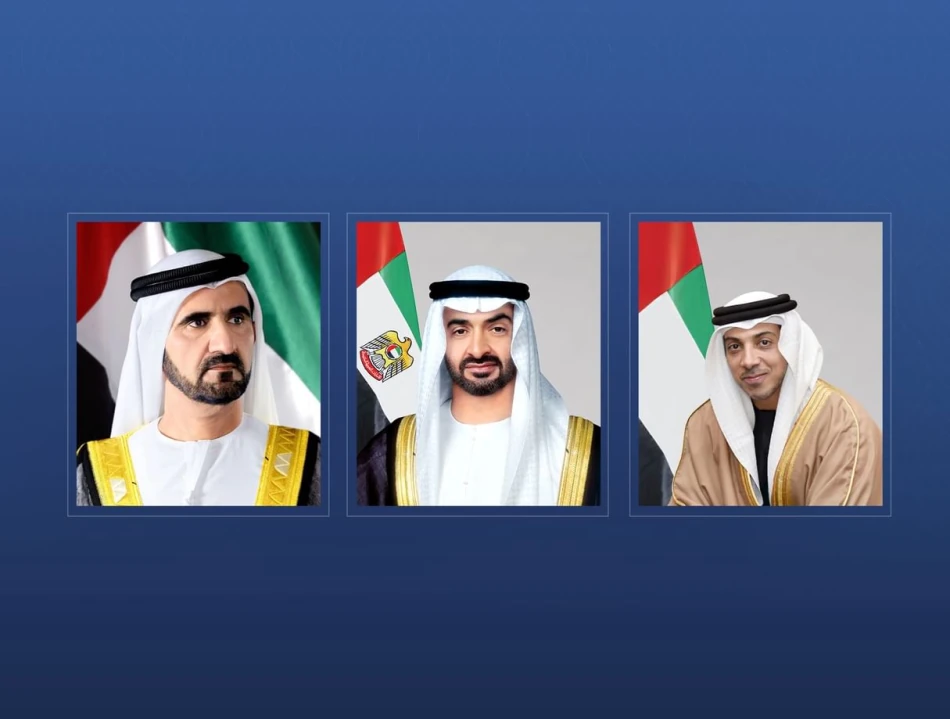
State Leader and Deputies Express Condolences to Kuwaiti Emir on Passing of Sheikha Saad Abdullah
UAE Leadership Extends Condolences to Kuwait Following Royal Family Loss
The United Arab Emirates' top leadership has sent formal condolences to Kuwait's Emir following the death of Sheikha Suad Abdullah Al-Ahmad Al-Sabah, demonstrating the continued diplomatic solidarity between the two Gulf nations amid regional challenges and economic transformation efforts across the Arabian Peninsula.
High-Level Diplomatic Gestures Reinforce Gulf Unity
UAE President Sheikh Mohammed bin Zayed Al Nahyan dispatched a condolence message to his counterpart, Kuwait's Emir Sheikh Mishal Al-Ahmad Al-Jaber Al-Sabah, expressing sincere sympathies over the loss of the royal family member. The gesture was echoed by other senior UAE officials, including Vice President and Prime Minister Sheikh Mohammed bin Rashid Al Maktoum, who also serves as Dubai's ruler, and Deputy Prime Minister Sheikh Mansour bin Zayed Al Nahyan.
These coordinated expressions of sympathy reflect the established protocol among Gulf Cooperation Council states, where royal families maintain close personal and diplomatic ties that often transcend political differences.
Strategic Importance of UAE-Kuwait Relations
Economic Partnerships Drive Regional Cooperation
The diplomatic courtesy comes as both nations navigate significant economic diversification programs. Kuwait's Vision 2035 and the UAE's post-oil economy strategy share common goals of reducing hydrocarbon dependence, creating synergies for bilateral cooperation in sectors ranging from renewable energy to financial services.
Trade between the UAE and Kuwait reached approximately $2.8 billion in 2023, with Dubai serving as a key logistics hub for Kuwaiti businesses expanding across Asia and Africa. The relationship has proven particularly valuable as both countries seek to position themselves as regional financial centers competing with Saudi Arabia's growing influence.
Regional Stability Through Personal Diplomacy
Unlike the more transactional relationships seen between some regional powers, UAE-Kuwait ties benefit from genuine personal connections between ruling families dating back decades. This foundation has enabled both countries to maintain neutral positions during various Gulf disputes, including the 2017-2021 Qatar blockade where Kuwait played a mediating role.
The consistent diplomatic protocol demonstrated in these condolence messages signals continuity in bilateral relations despite leadership transitions in both countries over recent years. Sheikh Mishal assumed power in Kuwait in late 2023, while the UAE's leadership has remained stable under Sheikh Mohammed bin Zayed's presidency since 2022.
Implications for Gulf Cooperation Council Dynamics
Such diplomatic gestures, while ceremonial, serve as important indicators of regional alignment as Gulf states face mounting pressure to present unified positions on issues ranging from Iran's regional activities to global energy transition policies. The UAE's quick response to Kuwait's royal loss demonstrates the priority both nations place on maintaining strong bilateral ties within the broader GCC framework.
For investors and regional analysts, these sustained diplomatic relationships provide confidence in the stability of cross-border business partnerships and joint infrastructure projects that form the backbone of Gulf economic integration efforts.
Most Viewed News

 Sara Khaled
Sara Khaled






